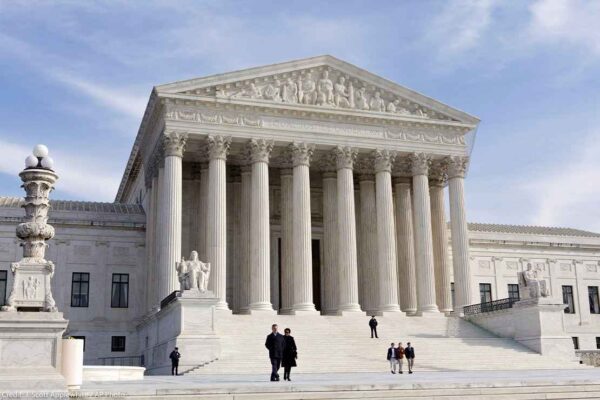ACLU Comment on Supreme Court Ruling in North Carolina Redistricting Case
WASHINGTON — In a 6-3 decision, the U.S. Supreme Court ruled that the U.S. Constitution’s Elections Clause does not allow state legislatures to ignore their own state constitutions when making rules for federal elections, resolving the controversial North Carolina voting case, Moore v. Harper.
The case, which was argued before the Supreme Court in December, was a test of a controversial theory known as the “independent state legislature theory,” which asserts that only the state legislature itself has the power to set the rules for federal elections, without interference from state courts or other co-equal branches of government and their constituents or delegates.
The court forcefully rejected that argument, affirming that state legislatures are bound by their own state constitutions and subject to judicial review before their own state courts.
The American Civil Liberties Union, ACLU of North Carolina, Rutherford Institute, and Niskanen Center filed an arguing that the petitioners’ radical theory flunked all of the traditional modes of constitutional analysis.
Ari Savitzky, senior staff attorney with the ACLU’s Voting Rights Project, had the following reaction to today’s Supreme Court ruling:
“The Supreme Court was right to reject the misbegotten independent state legislature theory. In our system, there is no room for a rogue legislature that can violate its own founding charter without any checks from other branches of government.
“This radical theory is totally contrary to the bedrock principle of checks and balances, and the court has correctly relegated it to the dustbin of history. The court’s decision confirms the important role of state courts and state constitutions in ensuring fair elections and protecting the right to vote for all.”
Ruling:
This case is part of the ACLU’s Joan and Irwin Jacobs Supreme Court Docket.




